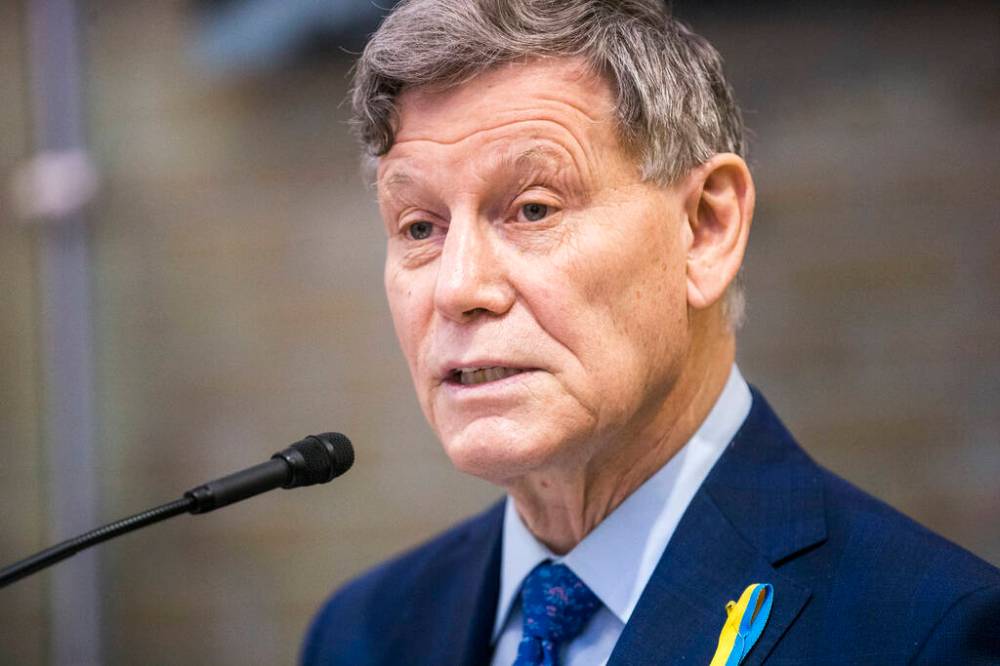Carbon tax to cost average Manitoba household $1,100 by 2030: analysis
Advertisement
Read this article for free:
or
Already have an account? Log in here »
To continue reading, please subscribe:
Monthly Digital Subscription
$19 $0 for the first 4 weeks*
- Enjoy unlimited reading on winnipegfreepress.com
- Read the E-Edition, our digital replica newspaper
- Access News Break, our award-winning app
- Play interactive puzzles
*No charge for four weeks then billed as $19 plus GST every four weeks. Offer only available to new and qualified returning subscribers. Cancel any time.
Read unlimited articles for free today:
or
Already have an account? Log in here »
Hey there, time traveller!
This article was published 24/03/2022 (1008 days ago), so information in it may no longer be current.
OTTAWA — The federal carbon tax will cost the average Manitoba household $1,145 a year by 2030, according to an independent analysis swiftly panned by environmentalists.
Manitoba is among four provinces that have a federally imposed levy that taxes certain fuels, because their own climate plans didn’t meet federal targets.
Ottawa remits the revenues in full to each province, mostly through income tax rebates and also in funding green retrofits. In figures published this week, the average Winnipeg family of four will receive a rebate of $832 next year, or $416 for adults living alone.

The Parliamentary Budget Office confirmed in a Thursday report most households are getting back more in tax rebates than the added costs they face, such as at the gas pump, because those who emit more carbon pay more of the levy, and every household gets the same amount rebated, based on the number of adults and children.
The analysis found the tax is progressive, with higher-income households taking more of a percentage hit to their disposable incomes than poorer ones.
But the budget watchdog went beyond the strictly fiscal balance, to weigh economic costs such as the loss of employment and investment income due to the federal climate plan.
Using a Statistics Canada tool used to measure the impact of cap-and-trade systems on certain industries. The analysis used those metrics to detect job losses, particularly among workers with limited educations, as well as the hit to investment portfolios for people living in provinces under the federal carbon tax.
By 2030, the average Manitoba household would earn $1,939 in carbon-tax rebates, but take an economic hit of $3,085, resulting in a net loss of $1,145.
Liberal MP Terry Duguid, a longtime environmentalist, said the analysis was thoughtful but failed to include the impact of green jobs still being created.
“They look at the situation as if it’s a static economy; the reality is there’s a transformation going on around the world and we are in a very competitive race,” said Winnipeg South MP.
“The PBO is presenting a very incomplete picture of how the economy is moving so rapidly.”
Duguid said the report doesn’t help public debates over climate policy if it doesn’t factor in the economic future of Manitoba’s hydro supply, and funding to transition companies such as NFI Group to create electric buses.
“Manitoba is going to be a net beneficiary — not only families but businesses, because price signals, through a price on pollution, are going to drive innovation and growth.”
The policy group Clean Prosperity echoed Duguid’s criticism, saying the analysis is “based on an incomplete picture of the economic benefits that climate action will bring for Canadians.”
The group argued the report is similar to assessing a province’s expenses ledger but not its revenues.
However, the Conservatives’ Manitoba caucus chairman, Dan Mazier, argued there isn’t clear evidence of jobs available for people in disrupted industries and the energy sector.
“It’s all theory; there’s not a plan,” said Mazier, MP for Dauphin—Swan River—Neepawa.
“They don’t even see the damage they’re doing to common Canadians,” he said. “Rural Canada is getting hammered by this.”
The Liberals designed the plan to give rural households a 10 per cent higher rebate than urban ones; in Manitoba, that means all homes outside the Winnipeg metropolitan area.
During hearings Thursday at the House environment committee, Mazier pressed bureaucrats on what data was used to determine the top-up reflected the added costs on regions that lack alternatives to gas-powered cars and agricultural equipment.
“The 10 per cent (top-up) was not based on a study,” said assistant deputy minister John Moffet responded.
Environment Minister Steven Guilbeault also pledged to have his department do an analysis of the carbon levy’s impact on rural Canadians.
Carbon taxes have bedevilled conservative parties across Canada.
Last month, federal Conservative interim leader Candice Bergen reversed her party’s embrace of a carbon tax, opting to oppose the concept of carbon levies instead of just criticizing the Liberal plan.
That change did not alter plans by Premier Heather Stefanson, who has pledged to design her own plan for Manitoba that would take effect in 2023, and scrap an unsuccessful court challenge of the existing federal backstop.
dylan.robertson@freepress.mb.ca









